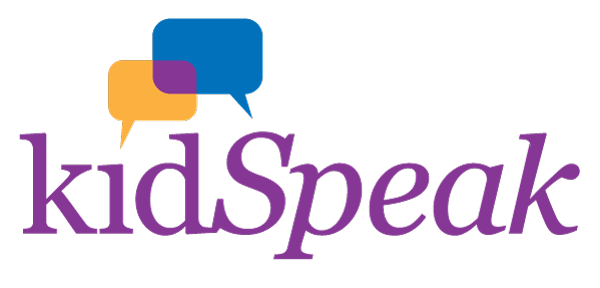My toddler doesn’t respond to his name or follow commands.
The ability to understand language, including following commands and responding to his or her name, is an essential building block in early learning. If your child is having difficulty in this area, it is essential to have your child evaluated by a KidSpeak certified speech-language pathologist (speech therapist) as soon as possible.
My toddler isn’t speaking words yet! What should I do?
If by age 2 he or she is not speaking or is unintelligible to family or familiar caregivers, the American Speech-Language-Hearing Association (ASHA) would recommend a speech evaluation. An evaluation at KidSpeak is comprised of a comprehensive assessment that includes family interview and formal testing.
I think my child has a speech impediment. What should I do?
Depending on your child’s age, a speech impediment or disorder may need to be treated by one of our speech therapists. If in doubt, schedule an appointment with us as soon as possible to learn more about how we can help.
Where can my child receive speech therapy?
At KidSpeak, we offer therapy appointments in our clinic or offsite at various schools, preschools, and daycare centers. Check our growing list of participating schools to find one near you!
How long does speech therapy take?
After you and your child are seen for an evaluation, your child’s speech therapist will explain their findings. Generally, speech therapy sessions can run from 30-60 minutes 1-3 times a week. Course of treatment will vary with each child, as we tailor each treatment plan to each individual client.
Will my insurance cover speech therapy?
We do accept most forms of insurance, including Aetna, Blue Cross and Blue Shield, United, Optum Health, and North Carolina Medicaid. Contact us with your specific insurance carrier and we can tell you if you will be covered.
Who can I see about helping my child eat, drink, or swallow?
One of our speech therapists can also address your child’s feeding and swallowing difficulties, also known as dysphagia. If you feel that your child would benefit from therapy for feeding and swallowing, we can conduct an evaluation. During therapy, one of our speech therapists can work with your child on keeping food in their mouths, sucking, chewing, and moving food down the throat for swallowing.
I think my child is stuttering!
Stuttering (known as a fluency disorder) can manifest in different ways. Some children will produce repetitions, some will stop in the middle of their words and sentences, and sometimes they will prolong a syllable. About 5% of children will experience a period of stuttering. If you believe your child is stuttering, the next step would be to get an evaluation.
What if my family is bilingual?
We currently have bilingual speech therapists who can administer complete evaluations and perform therapy sessions in Spanish.
How do I contribute to my child’s therapy?
A child’s family is absolutely essential to therapy! At KidSpeak, your child’s therapist will go over a potential treatment plan for your child based on their needs and your concerns. Our speech therapists will be sure to give you techniques and activities to do at home to further your child’s progress.
My child’s teacher doesn’t understand their disorder!
We’re happy to help! Our speech therapists may be able to come into your child’s school/daycare and give a presentation on a variety of speech and language related topics. Your teachers are definitely an important part of the treatment team and we want to make sure your child’s environment is as supportive as possible! We can also consult with school staff to make recommendations on ensuring success in your child’s classroom.
What should I look for in a therapist?
To ensure that your child receives high-quality, evidence-based treatment, you should look for a therapist with a Masters-level degree in speech-language pathology or communication disorders. To work with clients, the therapist should also have received their Certificate of Clinical Competence, indicated by the “CCC” after their name. Ideally, your therapist should have experience treating the disorders or impairments that your child has been identified as having. Your therapist should also be friendly, knowledgeable, and eager to collaborate with you on a treatment plan for your child.

